Answers With: Author, poet, essayist, and journalist Mandy Shunnarah
"Cultivate a sense of curiosity where you learn something new every day, and if you need to, where you’re writing often but manufacturing your own inspiration."
Answers With is a monthly series featuring the best kind of people, book people! I’ll be talking with readers I admire, from authors to booksellers and bookstagrammers, all about where they find answers—in the pages, a movie, song, comfort watch, or dessert. This series is free for now, but please consider supporting the interviewees work!
One of my favorite reading experiences is when a writer surprises me by seemingly writing about a focused topic, but really providing a larger commentary on the world around us. Hanif Abdurraqib is one of the best. If you read his work you know saying his books are simply about music or basketball is a disservice. Sure, the books are about those things, but they’re also about a sense of place and a sense of being, and in those ways, today’s guest reminds me of those great writing attributes.
I read Midwest Shreds by Mandy Shunnarah earlier this year, my only connection to skating being elementary school days spent hugging the side of a roller rink and a brief fantasy during lockdown when I thought about taking up the sport in my basement. (I was convinced the latter would leave me with broken bones, stranded alone during a pandemic.)
In the book, you ride alongside Mandy as they take a road trip through the Midwest. It’s an exploration of the history of skating throughout the region, including how racism, sexism, and ableism has impacted athletes and the sport. You’ll travel along, visiting skate parks and hearing memorable stories at each stop. It’s a love letter to the scrappiness spirit of the Midwest, to the sport of skating itself, and a celebration of that thing (in this case skating) that makes you complete. But also, it’s a call for all of us to take an honest look at how loving something also means “noticing its flaws and demanding it be better, do better.”
Read on for advice from Mandy on pursing a dream, a celebration of ADHD-inspired rabbit holes, wisdom from The Big Lebowski, and some wonderful writing and reading recommendations. This interview was a joy and took place via Zoom on July 7. I’ve edited for clarity and brevity. Any errors are mine.
Where do you turn to most for answers? Books, skating, poetry?
Definitely books, poetry often, and also ancestor worship. I know it sounds a little woo, but spending that time asking my ancestors questions—they’re reflecting my intentions back to me and probably reinforcing what I already know. We’re in such a fast paced world with social media and constant distractions, both reading and checking in with my ancestors allow me to slow down.
Is there a particular lyric, or a quote from a film, book, or TV that runs through your mind often or has become part of your unique Mandy language?
I love this question and I realized I have two that are frequent refrains. First from John Green—whose nonfiction era I’m loving—in The Anthropocene Reviewed he shares a quote from the late Amy Krouse Rosenthal, “pay attention to what you pay attention to.” As a person with ADHD growing up in the 90s, it was a problem to be solved. The focus was on “let’s medicate instead of let these kids experience wander and awe.” Now, I love my ADHD brain. It takes me down rabbit holes, my many special interests, and points of inspiration that I come back to days, weeks, or even years later. I sat on Midwest Shreds for years before I wrote the thing. Not every Google rabbit hole generates a book, but I refuse to view those actions as wasteful. The truest antidote to burnout is enthusiasm. You’re going to be enthusiastic about something and it’s going to keep going because it’s deeply coupled with enthusiasm.
I really love The Big Lebowski, and I love that moment from The Dude where he says, “that’s just, like, your opinion, man.” It’s so funny, the delivery, the way he says that. People give you unsolicited advice and I used to get really defensive, quick to give my reasoning, sharing facts—but sometimes those people don’t actually want to hear anything. They can think what they think, I can think what I think, I don’t need to engage. It’s such as silly movie, but once you start thinking about it, it’s actually kind of profound.
You laced up your skates at 28 to pursue a childhood dream. What advice do you have for someone who may be waiting to pursue their own dream?
I would say do it now. Why wait if it’s something you want to do? Truly, what are you waiting for? Because often, the more time, the more risk. With skating, you recover from injuries more slowly. You may have kids to take care of, parents to take care of. That’s not to say there’s a time limit on the dream. You have to take more considerations in mind the older you get and that in itself is discouraging, all the things you have to shift to pursue the dream. So whatever it is, it’s not too late, but do it now.
Did becoming a published author change you as a reader at all?
I think it’s made me a much more generous reader. I didn’t realize how hard it was before I did it. Probably a decade ago, I was going to be a serious critic, tear things apart to show my intellect. Now that I see how much hard work and effort it is to put a book out, I know no one’s going to get it 100 percent right, but they’re trying. To get a bad review now, it has to be really egregious.
Congratulations on the recent release of your poetry collection, We Had Mansions. How has the experience been different so far from Midwest Shreds?
It’s been a night and day difference in the publishing process, and the way I approached each book. Everything from getting the book deal, to writing, and editing was different. For Midwest Shreds, I wrote the proposal then wrote the book on spec, did the road trip, completed what I thought was the final draft.
Then with the poetry collection, I was writing all these poems over the past few years, they were living on my laptop. I didn’t realize I was working on a book. In talking with other poet friends, they asked me how many I had. It was over 70. They told me, there’s a book there and to print it out, a narrative would emerge once I laid them out. And that’s what I did and I realized, oh all these poems I’ve been writing have been a book. In terms of writing a book, I think that’s the way to do it, trick yourself into it. It’s way easier. From there, I started submitting to contests, I won with Diode Editions and the editing was entirely different. Midwest Shreds was heavily fact checked, while poetry is more subjective. Wildly different experiences from start to finish.
What’s your reading routine or some of your reading habits? What about your writing?
That’s a really good question, I do read every day. Not always the same format. My house has never been cleaner than when I’m reading a good audiobook. And I’m reading every day, even if it’s just five minutes before bed.
When it comes to writing, a lot of writers say write every day, but I don’t believe in that advice. I believe in staying curious. If I made myself write every day, I might get burnt out, or pissed, or write trash. Instead, cultivate a sense of curiosity where you learn something new every day, and if you need to, where you’re writing often but manufacturing your own inspiration. If you wait for inspiration you’ll never, or seldom write. Some good advice I’ve heard is to find ways to write even when you’re not writing. Really the thesis of that is even if you’re not writing, be thinking about it, do research—even it’s a novel, you do research. Going to therapy, the inner work, that’s part of it. Find interesting ways to be in service of the work. I encourage people to dream lucidly and learn to remember dreams, it’s a free source of material.
What is the book you recommend the most?
The Feather Thief by Kirk Wallace Johnson. It’s just so weird. It’s the ideal embodiment of “pay attention to what you pay attention to.” He got really into fly fishing and learned that the old techniques used feathers from birds that are extinct. From there he was invested into the drama of this community. He learned there had been museum heists for the feathers. It felt like an adventure novel where I was on the edge of my seat through his approach, his voice, and how invested he becomes. You see how he goes from a very journalistic approach to putting more and more of himself into it. The craft level, the storytelling. I’m obsessed with it.
What writers or books do you recommend for readers who want to read more Palestinian perspectives?
We’re so fortunate to have so many incredible Palestinian authors writing today. All doing fantastic work before October 2023 and the work they’ve shared since is next level.
Sarah Aziza
Rashid Khalidi
Etaf Rum
Randa Jarrar
Mosab Abu Toha
Mohammed El-Kurd
Hala Alyan
Naomi Shihab Nye
Mahmoud Darwish
Isabella Hammad
Susan Abulhawa
Susan Muaddi Darraj
Sahar Mustafah
George Abraham
Noor Hindi
Sonia Suleiman
Rasha Abdulhadi
Summer Farah
For folks who want to learn more about the current iteration of the genocide specifically, I actually recommend Genocide Bad by Sim Kern, an antizionist Jewish author! It's written in a really accessible way.
Mandy Shunnarah (they/them) is an Alabama-born, Appalachian and Palestinian-American writer who now calls Columbus, Ohio, home. Their essays, poetry, and short stories have been published in The New York Times, Electric Literature, The Rumpus, and others. Their first book, Midwest Shreds: Skating Through America’s Heartland, was published in July 2024 by Belt Publishing. Their second book, a poetry collection titled We Had Mansions, was just released from Diode Editions. Read more at mandyshunnarah.com.
Connect with Mandy: On Instagram
I hope you enjoyed this interview and a huge thank you to Mandy for sharing their answers!
You might also like:

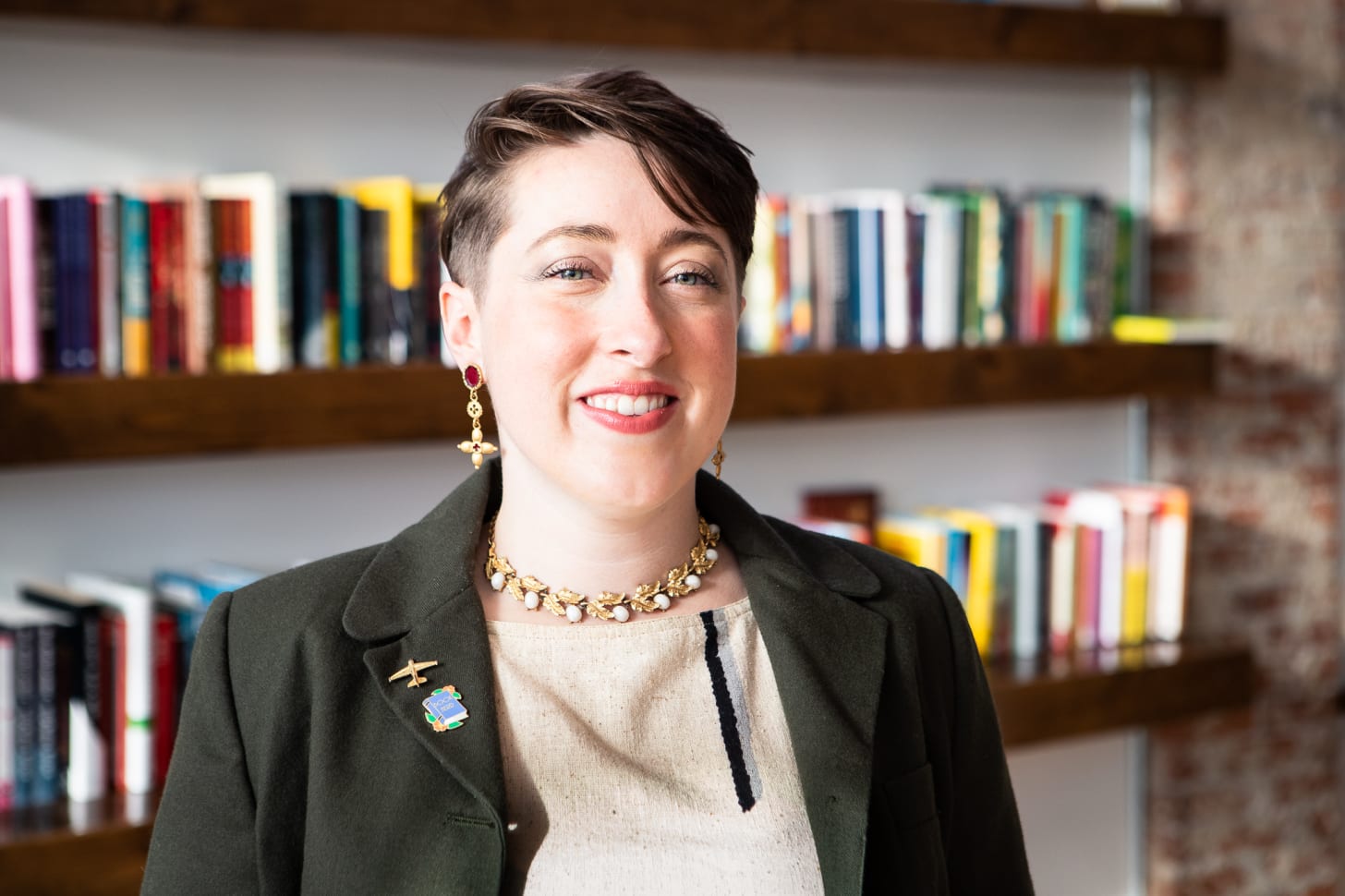
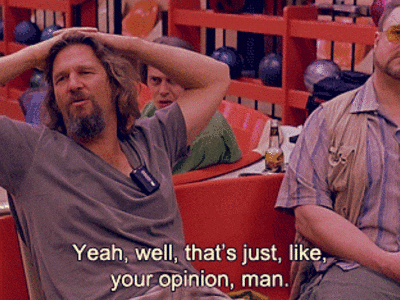
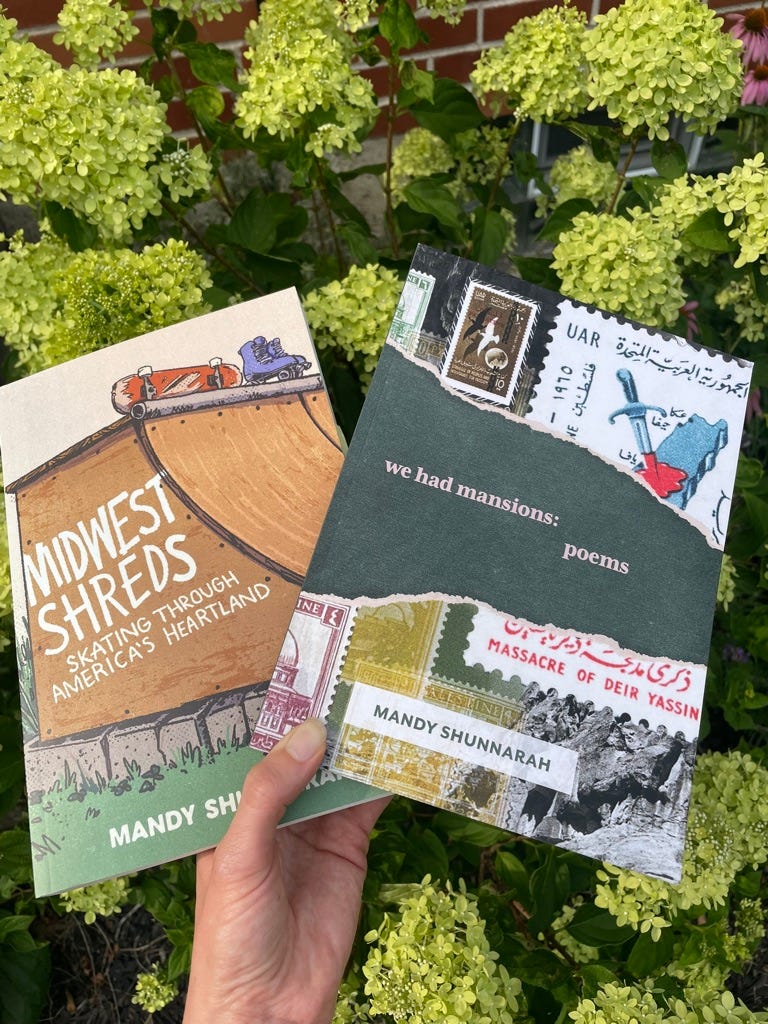
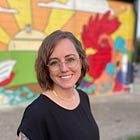
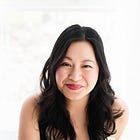
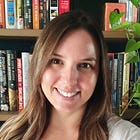
Thanks so much for having me on! I appreciate you and am thrilled we met. <3
I remember you talking about Midwest Shreds, I need to pick it up! Great interview!